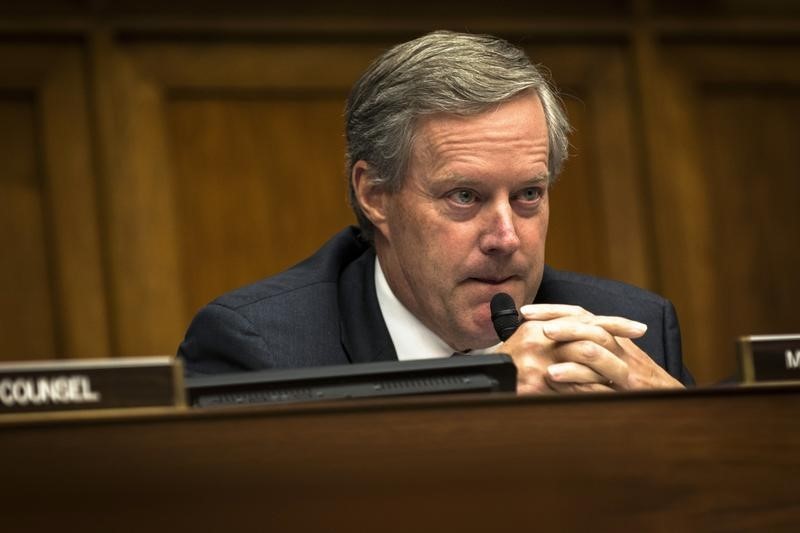Who is Kevin Hassett? Wolfe looks at the Trump ally tipped to become Fed Chair.
By David Lawder
WASHINGTON (Reuters) - Leaders of the U.S. House of Representatives' most influential conservative group told Reuters on Monday it was too late to stop an extension of the federal debt ceiling this week, but they will not hold it against the expected next House Speaker, Paul Ryan.
Representatives Mark Meadows, Jim Jordan and Mick Mulvaney, founders of the hard-right Freedom Caucus, told Reuters in an interview that there was not enough time for House Republicans to rally around a list of demands for raising the $18.1 trillion U.S. borrowing limit.
Outgoing House Speaker John Boehner is working with Democratic and Republican congressional leaders to finalize terms of an extension of federal borrowing authority through March 2017 along with a $112 billion deal to ease military and domestic spending caps for two years, according to House and Senate aides and lawmakers.
"To make any kind of meaningful longer-term strategy ... I think it is too late," Meadows said of the current Nov. 3 deadline to lift the debt limit. "So I don't see that as something that happens this time, but I do see that potentially in all future debt ceiling negotiations."
The three lawmakers said they wanted to work with Ryan on process reforms that would allow them to get a much earlier start on future fiscal deadlines to demand spending cuts and reforms to federal benefits programs such as Social Security and Medicare. This way, they would not be trying to craft a strategy at the last minute with default or government shutdowns looming in the balance.
They said, however, that they would not vote for a "clean" debt ceiling extension this week without some concessions on spending or benefits programs.
Mulvaney, from South Carolina, said the debt ceiling negotiations were typical of big deals during Boehner's reign in the House, negotiated behind closed doors with little input from Republican members.
"This is going the way that the current leadership wants it to go. Paul (Ryan) probably won't be blamed for whatever happens tomorrow, because it's clearly Boehner's baby."
However, he said Ryan's first big test would be a spending bill to keep government agencies open past a current shutdown deadline of Dec. 11. This would have to produce "at least something better than we would have gotten under Mr. Boehner."
Mulvaney said that in his view, that would mean not raising any discretionary spending caps without an equal amount of spending cuts elsewhere.
(Additional Reporting by Susan Cornwell, Andy Sullivan, Kevin Drawbaugh and Patricia Zengerle; Editing by Sandra Maler)
